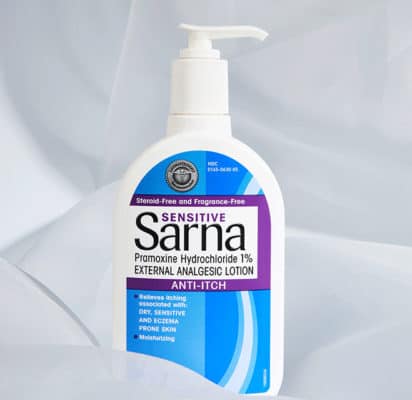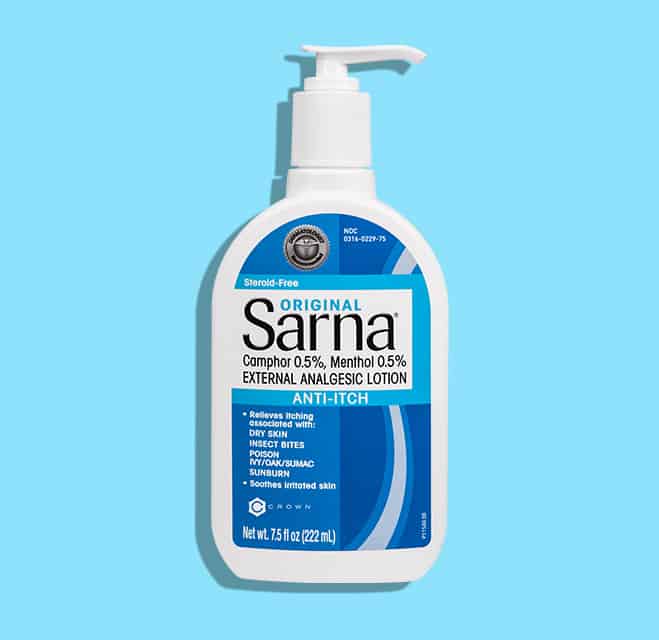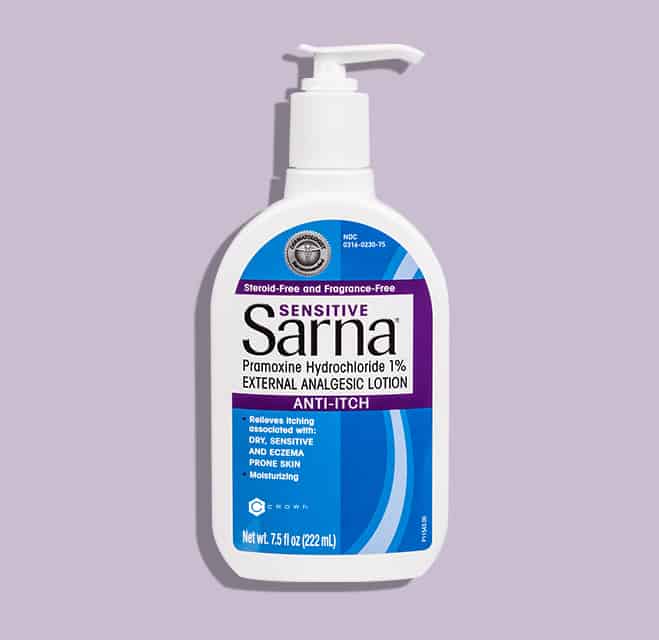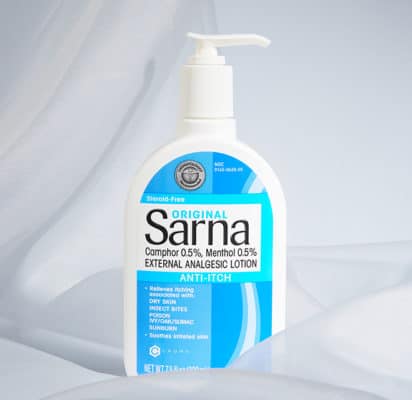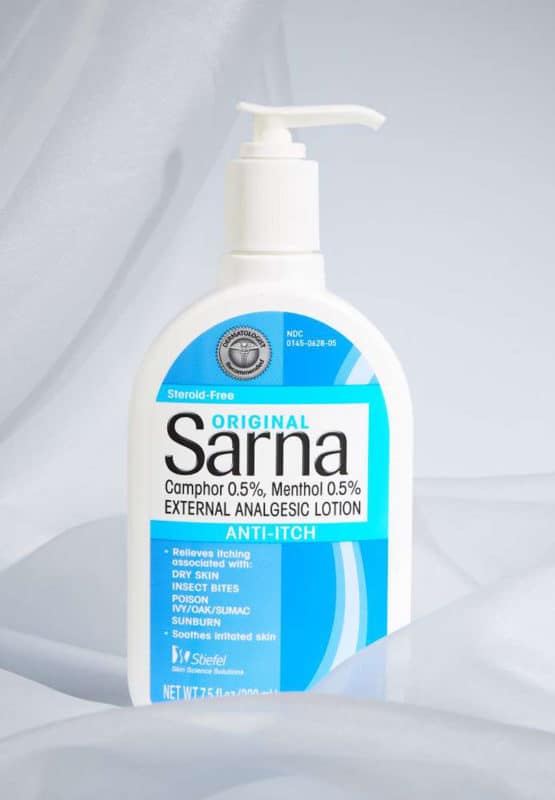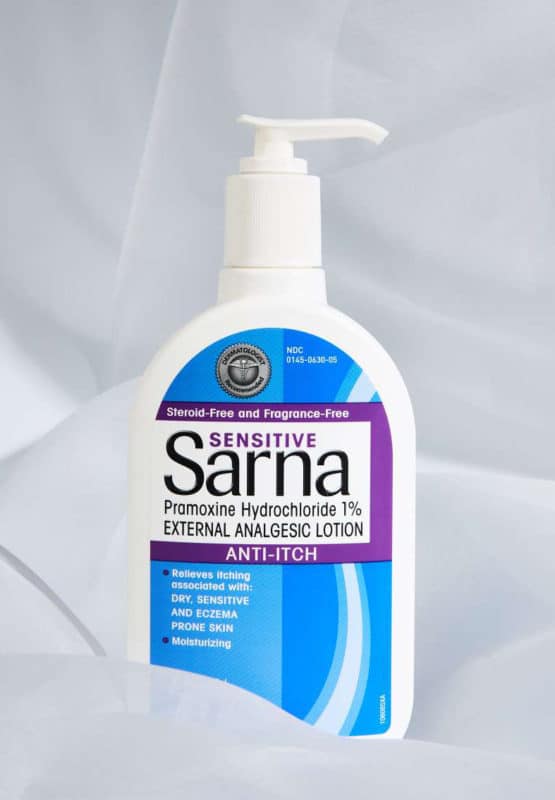Dry Skin – Prevention and Treatment
Moisturize
A good body moisturizer will help keep your skin supple and healthy. Sarna anti-itch lotions will moisturize dry skin and soothe itching at the same time. Apply moisturizing cream directly after bathing to prevent moisture from escaping.
Reduce your exposure to water
Long, hot showers and baths may be relaxing, but they melt away protective oils and allow more moisture to evaporate from your skin. Try to bathe in cool or warm — rather than hot — water, and don’t stay in the water for more than ten minutes. Avoid bathing more than once a day.
Use mild bathing products
Cleansers that contain strong detergents, perfumes or alcohol can dry out your skin, as can soaps with antibacterial or deodorant additives. Look for moisturizing, fragrance-free options.
Invest in a humidifier
If the climate is aggravating your dry skin, a humidifier can help keep your symptoms under control.
Wear waterproof gloves
If you can’t avoid immersing your hands in water, keep them covered. If you have eczema or dermatitis you can protect your hands further by wearing light cotton gloves under the outer waterproof ones.
Cover exposed skin
Even if the cold itself doesn’t bother you, wearing gloves and scarves will protect your skin from chapping and flaking.
















